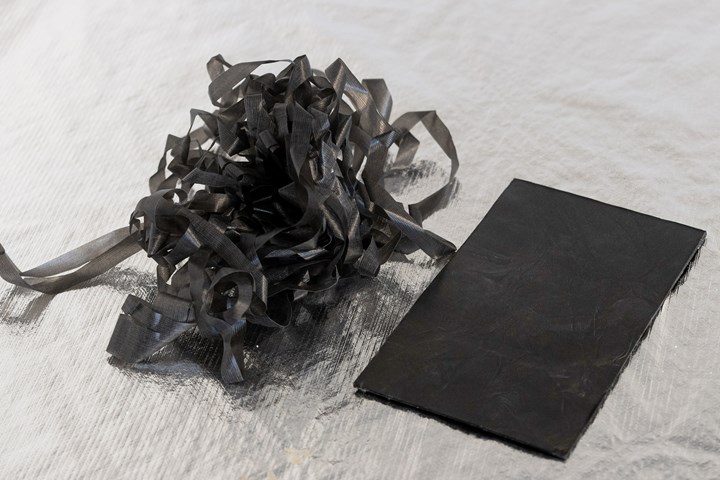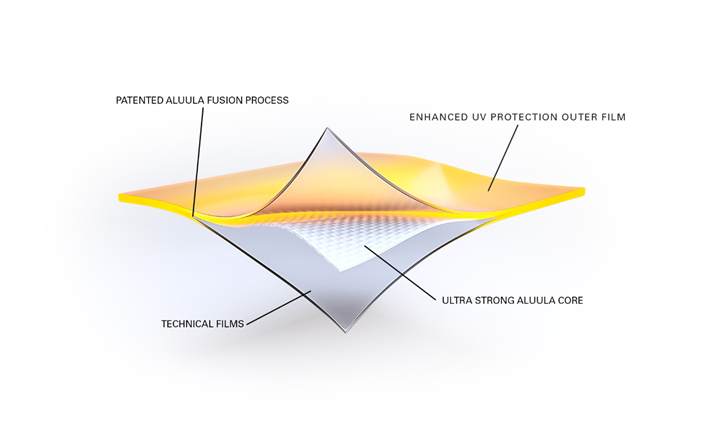Aluula, University of British Columbia develop recycling process for UHMWPE fiber composites
The researchers have developed high-strength molded panels made from recycled materials.

Advanced materials technology firm Aluula Composites (Victoria, British Columbia, Canada) is collaborating with the University of British Columbia (UBC) to develop recycling applications for Aluula’s high-performance, ultra-high molecular weight polyethylene (UHMWPE) based composite materials.
Using a patented fusion process, Aluula Composites has developed a way to fuse high-tech fibers and technical films together without the use of glues. This fusion process is said to create extremely light, strong and durable fabrics that are readily recylable.
An initial project with the Composites Research Network at UBC Vancouver established the ability to compress Aluula material off-cuts and end-of-life products into uniform, lightweight and ultra-durable panels.
According to Aluula, the recycling process keeps the UHMPWE fibers of the original materials intact, resulting in fiber-reinforced panels that are said to be 10x stronger than those molded from virgin UHMWPE.

Aluula is working with UBC Manufacturing Engineering (MANU) students, to develop and refine applications for these panels. Potential applications of these panels include backpack pack panels to low-friction wear plates, where strength, low weight, abrasion resistance and low friction are desirable.
“Working with UBC students on applications for these ultra-strong and ultra-durable products is proving to be invaluable as we refine our processes to ensure the recyclability of Aluula materials,” says Sam White, material scientist.
“Aluula has proven that sustainability and astounding performance can coexist without compromise. We look forward to leading the composite industry towards a more sustainable future,” says John Zimmerman, COO.
Related Content
-
Plant tour: Albany Engineered Composites, Rochester, N.H., U.S.
Efficient, high-quality, well-controlled composites manufacturing at volume is the mantra for this 3D weaving specialist.
-
Plant tour: Teijin Carbon America Inc., Greenwood, S.C., U.S.
In 2018, Teijin broke ground on a facility that is reportedly the largest capacity carbon fiber line currently in existence. The line has been fully functional for nearly two years and has plenty of room for expansion.
-
PEEK vs. PEKK vs. PAEK and continuous compression molding
Suppliers of thermoplastics and carbon fiber chime in regarding PEEK vs. PEKK, and now PAEK, as well as in-situ consolidation — the supply chain for thermoplastic tape composites continues to evolve.

.jpg;width=70;height=70;mode=crop)













